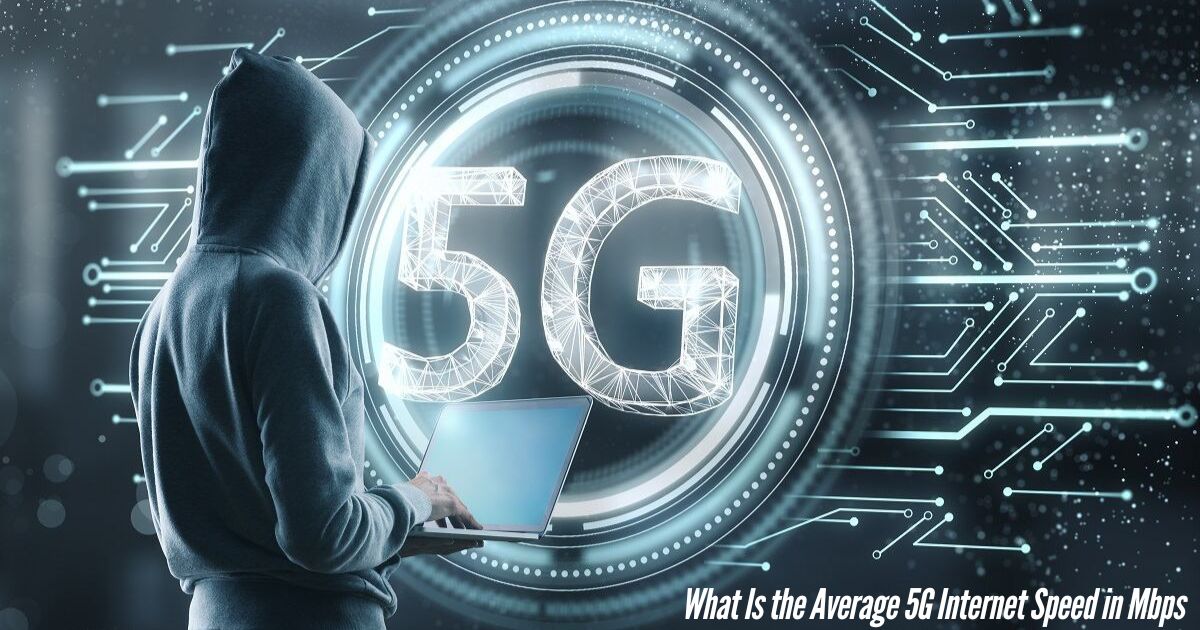Imagine a world where downloading a full-length movie takes only seconds or where lag-free video calls become the norm, even during peak hours. Sounds futuristic? Well, welcome to the era of 5G! But how fast is 5G really? And what does the average 5G internet speed in Mbps mean for you? These are the questions we’ll answer today.
In this article, we’ll uncover what 5G speeds mean in real-world scenarios, compare them to previous technologies like 4G, and explore how they impact various aspects of life. By the end, you’ll not only understand the technicalities but also know how to maximize your 5G experience. Stick around to discover actionable tips and insider knowledge that might just change the way you think about connectivity!
What Is the Average 5G Internet Speed in Mbps?
5G, or fifth-generation mobile network technology, promises blazing-fast speeds and ultra-low latency. On average, 5G internet speed in Mbps ranges between 100 Mbps and 1 Gbps in real-world conditions. However, in ideal situations, such as laboratory environments, speeds can reach up to 10 Gbps.
Breaking Down the Numbers
- Low-band 5G: Average speed of 100-250 Mbps
- Mid-band 5G: Average speed of 300-900 Mbps
- High-band (mmWave) 5G: Average speed of 1-3 Gbps
These variations depend on factors like location, network provider, and the device being used.
Key Takeaways
- 5G is significantly faster than 4G, with average speeds ranging from 100 Mbps to 1 Gbps.
- Factors like frequency band, network coverage, and device compatibility greatly influence speed.
- Mid-band 5G offers a balance between speed and coverage, making it the most practical for everyday users.
Advantages of 5G Internet Speed in Mbps
1. Unparalleled Speed
With speeds averaging up to 1 Gbps, 5G makes streaming, downloading, and online gaming seamless.
2. Reduced Latency
Latency as low as 1 millisecond allows real-time communication, crucial for applications like autonomous vehicles and telemedicine.
3. Enhanced Connectivity
5G can support up to 1 million devices per square kilometer, making it ideal for smart cities and IoT devices.
Comparison Table: 5G vs. Previous Technologies
| Feature | 4G LTE | 5G |
|---|---|---|
| Average Speed | 20-50 Mbps | 100 Mbps – 1 Gbps |
| Latency | 30-50 ms | 1-10 ms |
| Device Support | 10,000/km² | 1,000,000/km² |
| Use Cases | Streaming HD | VR/AR, IoT, AI |
User Experience: What Does 5G Feel Like?
1. Streaming
With 5G internet speeds in Mbps, you can stream 4K videos without buffering, even in crowded areas.
2. Gaming
Online multiplayer games feel smoother, with latency nearly eliminated.
3. Work Efficiency
Uploading large files and participating in video conferences becomes effortless, enhancing productivity.
Actionable Tips to Maximize Your 5G Experience
- Upgrade Your Device: Ensure your smartphone or router supports 5G bands.
- Choose the Right Plan: Opt for a plan that includes mid-band or mmWave 5G for the best speeds.
- Optimize Your Location: Being in a 5G coverage area significantly boosts performance.
- Use 5G for heavy tasks: Prioritize 5G for data-intensive activities like cloud gaming or high-resolution streaming.
Case Studies: Real-World Applications of 5G
1. Healthcare
A hospital in New York used 5G to perform remote surgeries with near-zero latency, showcasing its potential in telemedicine.
2. Gaming Industry
Leading gaming platforms report a 30% reduction in lag during live streams, thanks to 5G.
3. Education
Virtual classrooms are becoming more interactive, with 5G internet speed in Mbps supporting real-time collaboration.
FAQs
1. What is the average 5G speed in Mbps?
The average 5G speed ranges from 100 Mbps to 1 Gbps, depending on factors like network provider and location.
2. How does 5G speed compare to 4G?
5G is 10-20 times faster than 4G, with significantly lower latency.
3. Do all devices support 5G speeds?
No, only devices equipped with 5G-compatible hardware can access these speeds.
4. What affects 5G speed?
Factors include network coverage, frequency band, device compatibility, and physical obstructions.
5. Is 5G available everywhere?
While expanding rapidly, 5G coverage is still limited in some rural and remote areas.
Conclusion
5G isn’t just about speed; it’s a transformative technology that promises to revolutionize the way we live, work, and connect. What is the average 5G Internet speed in Mbps? With average speeds ranging from 100 Mbps to 1 Gbps, 5G is setting new benchmarks for connectivity. From enhanced gaming to life-saving telemedicine, the possibilities are endless.
Now it’s your turn! Have you experienced 5G yet? Share your thoughts and experiences in the comments below. Don’t forget to share this article with friends who might be curious about 5G internet speed in Mbps. Let’s spread the knowledge!
